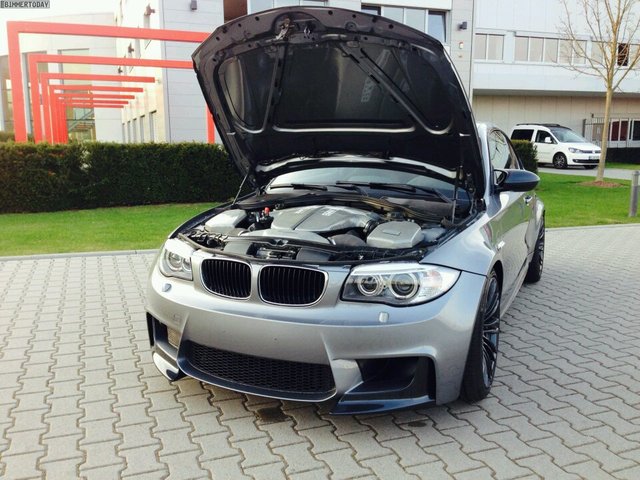Products are designed to fail
I know the title sounds like a bad conspiracy theory but it is a well known fact although rarely spoken off.
Think about it, how often did you have products that broke down just after the warranty period expired? If you are like most people that keeps happening over and over. The TV, your phone, e-book reader, computer, mouse, keyboard, remote, car, stereo…

BMWs are notorious wrecks after 3 (to max 5) years. It is said it is best to never buy a 3+ years old BMW because maintenance costs are astronomical.
Many people still think products made for a specific market are made better (or worse) than the same product for a different market. For example they think that a BMW made for Germany is of higher quality than a same type of BMW made to be exported to France. Ages ago (and i mean ages… like at the times of Ford T) that might have been true, but in modern times it is financially unsensible to divide the production line for several markets, because they added logistic costs and additional required machinery would skyrocket the production costs.
You see doubling the number of products made on the same manufacturing line can decrease the individual product price by more than 50% (of course the number depends on the product and number of built units), while decreasing the quality of a few parts (quality of many parts cannot be decreased because the products then wouldn’t work at all) would decrease the price by only a few percent.
Do we have proofs?
On the other hand the “rumor” that products are designed to fail is not only true but also a far greater problem for consumers. First let’s verify the claim that products are designed to fail:
I could tell you i have heard that from a reliable source from a car company (which i have) but you’d have nothing but my word to take for. Instead you can check for yourself that there is an actual term for ‘engineering for failure’ - planned obsolescence. You can check the origins of it yourself. Some documents also used to float around the internet which showed how much particular car companies invested in determining how to engineer parts to endure exact number of cycles so that they break after a certain period. Of course the document has conveniently disappeared…
To be honest planned obsolescence is not really a conspiracy theory. It is a common sense move as at one time it was necessary for kickstarting a failing economy. So it was initially a good thing but after the brunt of the crisis was over it was misused for ever greater profits. This eventually gave it a bad name and made it a hush-hush strategy but anyone who works in the industry knows this is still very much alive.
Already as students engineers are taught not to over-engineer products. It starts with the simple things like bearings and moves on to structurally vital parts. The situation is not much different in the electronics industry where products life expectancy is regulated not just by part dimensioning but also heat generation and battery output control.
Still not convinced? How about a more daft example - printer cartridges.
Ever had one of them fail while there was still ink inside? If you print a lot you probably had many such occurrences. The printers software says the cartridge is empty but you can clearly see there is still about 100 pages worth of ink inside… Scrape off the chip and stick on a chinese aftermarket chip and wouldn’t you know it you print another 150 pages with that cartridge in full quality.
*HP 1800 laser. I had one of those… Great printer, but insane printing costs.
What can we do about it?
Since virtually every company in every industry adheres to ‘design to fail’ we as consumers seemingly have little choice over the longevity of the products we buy but this is mostly only true for the popular products. If you opt to buy from smaller/newer producers who are in the process of building a name for themselves you have a higher chance of getting an over-engineered product which will last you an eternity.
A good choice are also previously popular companies which have fallen out of favor due to a series of bad products. Such companies need to reestablish their position on the market and in the hearts of their former fans and there is no better way to do that than by providing unparalleled quality. While making such a buying choice you may not gain any street cred among your hipster friends but it will get you a great product and at the same time save you some hard earned money.
On the other hand if some product type consistently keeps failing on you and thus making you so mad you wanna go beat up the guy who made it, you can consider starting your own company which will focus on superior quality. There is always a market for high quality products no matter the industry you are in.
Conclusion

Planned obsolescence is not an evil scheme of capitalism as some would have us believe, it is just too often abused - just like drugs and alcohol. Even in the times of no financial crisis many companies would not survive without planned obsolescence which means even fewer jobs than there are at the moment.
Some companies could adjust by raising the price of their products but since there would be fewer production and maintenance lines - since fewer products would be sold - there would again be fewer jobs. So no matter how we design the products our society is no better off.
But we could decrease the market margins… I’ll talk about this in my next post.
I'm often called a conspiracy theorist myself, but I have to say although this is very true, there are a bunch of work arounds. In New Zealand where things are often dearer and get fixed more, people are more aware of them.
For example, with cars, stick to Japanese. Toyota's go for ever, as do most Japanese brands.
And most other products (not printers though) have cheaper more reliable options. If you stick with one brand you can get very efficient at keeping them going. We have 10 HP computers - the newest is five years old. We are paying around $200 each for replacements and can fix them for next to nothing with parts from our collection.
There is a good reason why most of the cars in NZ are old Toyota Corollas!
(Hint, it's not speed or luxury)
Toyotas do run forever, I drove a Toyota MR-2 in the 80's and it never died, just needed one AC repair along the way and I traded it at 275k miles. My wife loves her 2009 Highlander and will drive it until it's dead.
Yes its a real thing and its not evil. Price Descrimination is though, where companies price their products differently in different countries.
Yeah, in the country where i live everything is 20% to 50% more expensive than in say UK (yet paychecks are only 1/3 of UKs). It really pays off to import ;)
That's exactly what happened to my car. They told me that it's not covered by the warranty after a year of usage, wtf? Looking forward to decreasing the margins cost post ;D
Hell yeah! I'm working on it - at least for a few products ;)
Last years I'm not even bothering collecting warranties, it just has no meaning because everything fails right after warranty is expired. Conspiracy theory? Hell no! They do it on purpose!
Exactly!
I stopped carring about warranties too.
Is planned obsolescence a necessary evil? I used to have a digital camera and is still working very well but i had to change it when it will not work with my computer. Since I had to store my photos on my computer, I had to buy a new camera.
I use USB addapters for that.
On the other hand i had a phone for 8 years - worked beautifully - and then it was stollen XD
New phones don't last nearly as long saddly.
I can agree with the mentioned arguments and have some own examples like photo camera, TV, mobile phone etc.
But most of us want cheaper products on the newest level of modern technology. If these are not the arguments you will also get some products. I use my Apple iPad for about six years but with limited features. My daugther used Samsung smartphones for a maximum of two years, after that they were damaged. Now she is using a better one from Apple.
The power belongs to us the consumers. All we have to do, is to communicate the deficits of products on appropriate platforms to others. We can change the mindsets of these producing companies. May also our mindsets ;-)
The
I am using my 69€ LG phone for 5+ years now. It's still like new :D
The most i used a phone was 8 years then it got stollen.
I agree, the choice mostly lies with us. Though some things are down right impossible to get in ''long lasting'' versions (like PC mice - i broke so many of them XD).
In regards to the BMW I couldn't agree more. I am on my 6th BMW because I love the way they drive and owning one with under warranty is great but once they're out It's a real downer when it needs to go in for service $$$.
At least you get free BMW branded bottled water while you wait for the bad news.
HAHA, that's so harsh XD
I used to have a MB van, same story, but no free water XD (man once it got old it drank oil faster than we drink water)
Hey @mrlogic, thanks for finding me. This is a great topic. I can't stand that every time I upgrade my ios software, my iphone gets slower and slower. Conspiracy theory or not, my gear was working faster and better before a recommended upgrade. Thanks again.
Glad you liked it :)
I have an android phone with pending update, but i'm holding it off because i hear it kills the batery life. I guess all phones are the same... Though i'm dying to see if ubuntu phone is like that too :)